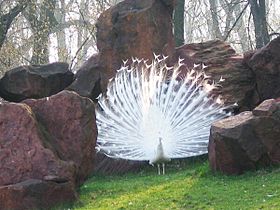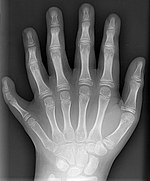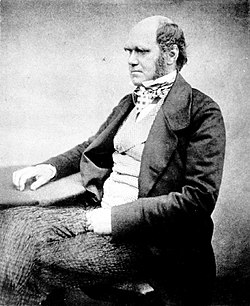Talk:Natural selection: Difference between revisions
imported>Bill James (cleanup pass) |
imported>Bill James mNo edit summary |
||
| Line 40: | Line 40: | ||
| cat3 = | | cat3 = | ||
| cat_check = n | | cat_check = n | ||
| status = | | status = 2 | ||
| underlinked = n | | underlinked = n | ||
| cleanup = y | | cleanup = y | ||
Revision as of 03:19, 29 March 2007
Plan for Article
This article bears an important relationship to many other articles of the Citizendium pilot. It is probably best updated so that a user can reference it appropriately both from genetic articles at a higher academic level, and hobbyist articles on breeds of animals and varieties of plants on a practical level. Nancy Sculerati MD 08:06, 5 January 2007 (CST)
Natural selection: biology
This article is about natural selection as a biological theory. The wikipedia article, which was very long, also included information theory and social darwinism, as well as evolution. As almost none of what was written about these topics was easily comprehensible, I deleted them. Nancy Sculerati MD 17:02, 5 January 2007 (CST)
- The feeling among many of the WP editors as been that this is the best of the evolution articles, relatively little affected by the continual struggle against intelligent design and unintelligent vandalism. How much further do we drill down until we get to the actual scientific articles? There are many accessible and books about the genetics of individual pet and agricultural animals. I suggest the place for them will be the articles about the individual animals.
- The discussion of the social & philosophical aspects is a summary, and fuller accounts appear several places in WP, and I will try to find them and combine them into a single article, but there should still be a sentence here leading to it. I am not certain about the title.
- The physical aspects, interwoven as they are with Behe's argument based on the second law of thermodynamics, also needs treatment. I think its done fuller elsewhere, and again it should be tracked down. and again I'm not sure about a good title. Again, it should be referred to here. The existing paragraph may have suffered from over-condensation. It may be better to put these in after the article itself has been written.
- The material about history is still included, and I have added the missing subheadings. Probably this too will eventually be a separate articles, but I do not know if we need separate articles on the history of nat.sel., and the history of evolutionary thought.
- I changed the general books to come first, and I do not like called the more advanced ones "technical" To me, 'technical" in a biological setting implies either technique, or the applications, such as agriculture, medicine, and biomedical engineering. That doesn't mean I like "more advanced"--think of it as a place holder. DavidGoodman 18:19, 5 January 2007 (CST)
- I just looked, and the WP article is experiencing further work from some good people. I am collating it tonight to incorporate improvements in ours , and then it will need checking every month or so. We should use good work where we find it. DavidGoodman 18:22, 5 January 2007 (CST)
added from edit
- The feeling among many of the WP editors as been that this is the best of the evolution articles, relatively little affected by the continual struggle against intelligent design and unintelligent vandalism. How much further do we drill down until we get to the actual scientific articles? There are many accessible and books about the genetics of individual pet and agricultural animals. I suggest the place for them will be the articles about the individual animals.
- The discussion of the social & philosophical aspects is a summary, and fuller accounts appear several places in WP, and I will try to find them and combine them into a single article, but there should still be a sentence here leading to it. I am not certain about the title.
- The physical aspects, interwoven as they are with Behe's argument based on the second law of thermodynamics, also needs treatment. I think its done fuller elsewhere, and again it should be tracked down. and again I'm not sure about a good title. Again, it should be referred to here. The existing paragraph may have suffered from over-condensation. It may be better to put these in after the article itself has been written.
- The material about history is still included, and I have added the missing subheadings. Probably this too will eventually be a separate articles, but I do not know if we need separate articles on the history of nat.sel., and the history of evolutionary thought.
- I changed the general books to come first, and I do not like called the more advanced ones "technical" To me, 'technical" in a biological setting implies either technique, or the applications, such as agriculture, medicine, and biomedical engineering. That doesn't mean I like "more advanced"--think of it as a place holder. DavidGoodman 18:19, 5 January 2007 (CST)
- I just looked, and the WP article is experiencing further work from some good people. I am collating it tonight to incorporate improvements in ours , and then it will need checking every month or so. We should use good work where we find it. DavidGoodman 18:22, 5 January 2007 (CST)
| Workgroup category or categories | Biology Workgroup [Categories OK] |
| Article status | Developing article: beyond a stub, but incomplete |
| Underlinked article? | No |
| Basic cleanup done? | Yes |
| Checklist last edited by | Bill James 16:17, 29 March 2007 (CDT) |
To learn how to fill out this checklist, please see CZ:The Article Checklist.
Removed during cleanup



- Biology Category Check
- General Category Check
- Category Check
- Advanced Articles
- Nonstub Articles
- Internal Articles
- Biology Advanced Articles
- Biology Nonstub Articles
- Biology Internal Articles
- Developed Articles
- Biology Developed Articles
- Developing Articles
- Biology Developing Articles
- Stub Articles
- Biology Stub Articles
- External Articles
- Biology External Articles
- Biology Underlinked Articles
- Underlinked Articles
- Biology Cleanup
- General Cleanup
- Cleanup